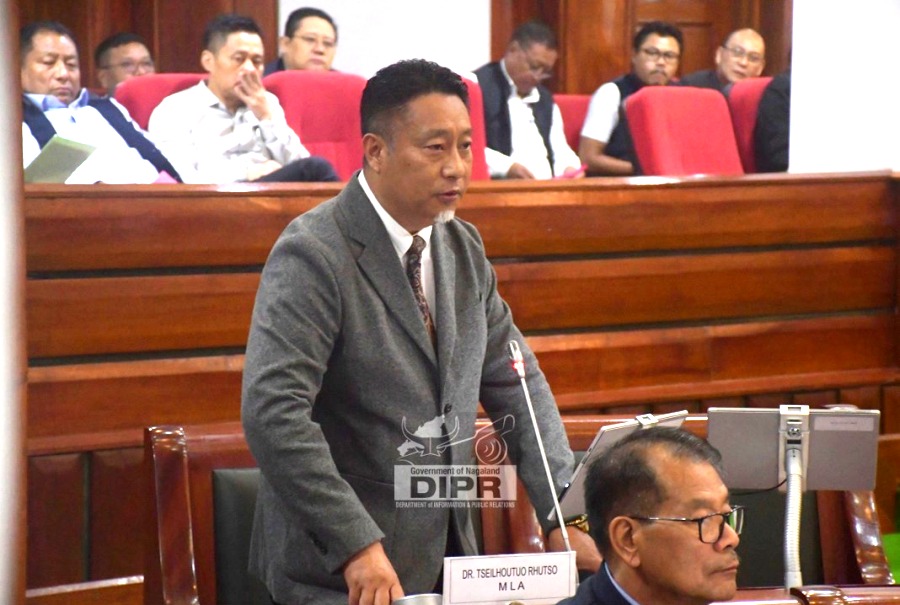NPP legislator Dr. Rhutso proposes new ‘General’ and ‘Reservation’ categories in Nagaland policy to address inequality.
Share

KOHIMA — National People’s Party (NPP) legislator Dr. Tseilhoutuo Rhutso on Thursday raised the contentious issue of job reservation policy in the Nagaland Legislative Assembly, while also sharing suggestions even as the government-appointed commission continues its review.
The 5 Tribes Committee on Review of Reservation Policy (CoRRP) has been demanding either the scrapping of the 1977 Nagaland Reservation Policy or a reallocation of the unreserved quota to the five tribes excluded from its benefits.
Rhutso said that he had witnessed the ground realities of people across the state through the Chief Minister’s Mobile Operation Theatre (CM-MOT) initiative and shared his observations in the House.
According to him, 70–80% of the advanced tribes (AT) and 10–20% of the backward tribes (BT) already have the means for a comfortable life, which he described as the “creamy layer.”
Also read: MLA Kuzholuzo Nienu cautions against hasty decisions on job reservation quota in Nagaland
On the other hand, 20–30% of the AT and 80–90% of the BT are unable to compete with the rest of the tribes due to various disadvantages, particularly in education and exposure, leaving them the voiceless section of Naga society.
He observed that while benefits meant for the general category are mostly availed by the well-off, those earmarked for BT are largely “enjoyed by the creamy layer,” defeating the purpose of the policy.
Considering this socio-economic disparity, Rhutso offered his “personal” suggestions on the Job and Technical Reservation Policy during zero hour on the last day of the session.
He proposed ending the use of the terms “advanced tribes” and “backward tribes” within the “Naga family” and instead recommended adopting “General Category” (GC) and “Reservation Category” (RC).
More from 14th NLA sessions: Nagaland government to set up panel on Tuli paper mill
By his logic, GC would consist of the well-off sections of AT along with the creamy layer of BT, while RC would cover the underprivileged sections of both AT and BT. He suggested that the government frame clear criteria for this division.
Rhutso further proposed that Grade III and above jobs (NSSB, NPSC, UPSC) fall under GC, while farmers/cultivators and Grade IV and below be placed in RC. Recruitment results, whether through departmental exams, NSSB, or NPSC, should be merit-based with a 50:50 GC–RC system, he said.
On backlog vacancies, he suggested that if a reserved tribe cannot fill a seat, the post should be offered to the next tribe in line, with the unfilled tribe given first preference in the next vacancy.
Regarding higher technical studies such as NEET and JEE, he argued that those selected under RC quota should not be given another reservation in NPSC/NSSB.
“Our government and our people deserve the best professionals—be it doctors, engineers, or IT experts. Please, no reservation when it comes to professional services. We need the best qualified professionals who are reliable and assets to the government,” he said.
Rhutso remarked that while the current disparity between the “haves and have-nots” is significant, the imbalance would gradually narrow with retirements. With a 50:50 GC–RC system, he claimed, equality could be achieved within the next 22 years, aligning with the vision of “Viksit Nagaland.”